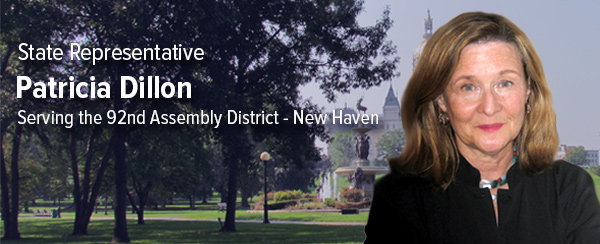
October 6, 2004
PANEL LAMENTS PLIGHT OF UNINSURED
Maria Garriga, New Haven Register Staff
HAMDEN - A panel at Quinnipiac University Tuesday agreed that something needs to be done to help 365,000 Connecticut residents who lack health care insurance. "We have to look at health care as an economic commodity based on supply and demand, or as a social benefit for all citizens of the United States. It’s a matter of social justice," said Dr. J. Robert Galvin, commissioner of the state Department of Public Health.
But making frequent reference to former President Clinton’s ill-fated attempt at a universal health care policy, panelists declined to offer any definitive solutions to the 200 people gathered at the university’s Alumni Hall.
State Rep. Patricia Dillon, D-New Haven, said universal health care would be a step toward a single-payer system like Medicare.
"Medicare is a single-payer system, and nobody thinks of Medicare as socialized medicine," Dillon said.
Panelists also noted that Americans have many misconceptions about the uninsured.
Nationally, 44.7 million people, including 9.1 million children, went without health insurance in 2003.
More than 80 percent of the uninsured have jobs, but 64 percent of uninsured workers have employers who offer no health insurance, based on a report by the Kaiser Commission on Medicaid and the Uninsured. Many of the remaining 40 percent may not qualify for the employer’s plan because they work part time or as contract workers.
And many uninsured employees simply cannot afford the employee share of premiums for health insurance, so they go without, said Diane Rowland, executive vice president of the Henry J. Kaiser Family Foundation.
As insurance companies charge higher prices to employers for health plans, many employers have been shifting part of the cost increases to employees.
According to the Kaiser Commission on Medicaid and the Uninsured, the average annual premium for single workers rose from $334 in 2000 to $558 in 2004, and for a family of four from $1,619 in 2000 to $2,661 in 2004.
The high cost of premiums has forced some low-income workers to try to pay medical bills themselves instead of going through insurers, Galvin said.
"If you are at the poverty level and try to pay $500, that is all the money in the world," Galvin said. People without health insurance often do not receive preventive health care and wind up in emergency rooms, where the state picks up the tab, although it is the most costly form of medical care.
"For some reason people blank out when they hear the word ‘uninsured.’ We need to give these people a face," Dillon said.
A business community advocate said the cost drivers, such as massive awards in personal injury cases, need to be considered as well.
"Tort reform needs to be on the table," said Anthony Rescigno, president of the Greater New Haven Chamber of Commerce.
Maria Garriga can be reached at mgarriga@nhregister.com or 789-5685.
© New Haven Register 2004